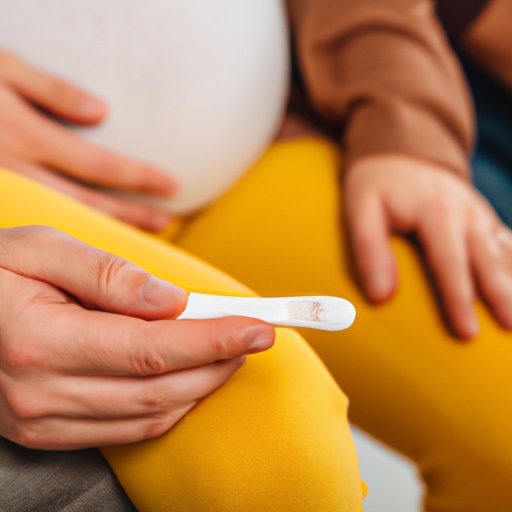Introduction
Having a baby is a transformative experience that can bring happiness and fulfillment to many people’s lives. For some, having a baby in their 20s or early 30s is ideal, while others may choose to have a child later in life. However, with age comes a decline in fertility, greater health risks, and unique emotional and personal considerations that should be weighed carefully. This article aims to explore the factors that influence the decision to have a baby later in life, including medical risks, ethical considerations, alternative options, and success stories.
Age-related fertility decline
As women age, the number and quality of their eggs decline, leading to lower fertility rates. Additionally, male fertility also decreases with age, reducing the chances of conception and increasing the risks of medical complications for both mother and child.
According to the Centers for Disease Control and Prevention (CDC), women under the age of 35 have a 20% to 25% chance of getting pregnant each month. By age 40, the chances decrease to 5%. By age 45, the chances of getting pregnant each month are less than 1%. Men also face a decline in fertility as they age, with decreased sperm count and quality, leading to lower conception rates.
The timing of menopause also plays a significant role in fertility for women. Menopause typically occurs between the ages of 45 and 55, marking the end of the reproductive years. However, menopause can occur earlier or later than this range, impacting a woman’s ability to conceive.
Risks and complications
Pregnancy at an older age can increase the risks of medical complications for both the mother and child. These risks include gestational diabetes, hypertension, pre-eclampsia, placental complications, and preterm labor. There is also a higher incidence of chromosomal abnormalities and other birth defects with advanced maternal age, including Down syndrome, trisomy 18, and spina bifida.
Additionally, there is an increased risk of stillbirth, miscarriage, and neonatal death with older pregnancies. The American College of Obstetricians and Gynecologists (ACOG) recommends that women over the age of 35 are monitored closely during pregnancy and labor to avoid or manage these risks.
Emotional and personal considerations
The decision to have a baby later in life can also be influenced by various emotional, personal, and societal factors. Many older couples may have established careers or caring responsibilities for elderly relatives, which can make adding a child to their lives challenging. There may also be concerns about the physical demands of pregnancy and childbirth, as well as the potential for chronic health conditions.
On a social level, there may be pressures or criticisms from family, friends, and society at large about having a baby later in life. Older mothers may worry about being unable to keep up with young children, or the age gap between themselves and their children. Additionally, there may be concerns about providing for a child financially, and ensuring the child receives adequate care and support.
Legal and ethical perspectives
Various legal and ethical implications arise when discussing having a baby later in life. Many countries have age limits for reproductive assistance, such as in-vitro fertilization (IVF), based on accepted medical practices and ethical considerations. For example, in the United States, guidelines from the American Society for Reproductive Medicine recommend that IVF should not be used for women over the age of 50.
These policies are in place to balance the risks to the mother and child with the right to pursue parenthood. There are also ethical concerns surrounding late parenthood, including the potential for parents not living long enough to see their children grow up, or the impact of older parents on their children’s lives and future plans.
Success stories and alternative options
While there are inherent risks associated with late parenthood, many older mothers have successful pregnancies and healthy children. Advances in medical technology, such as egg freezing or donor eggs, have made it possible for more women to pursue parenthood later in life. Adoption and surrogacy are other alternatives that can allow people to become parents at any age.
Support and resources are also available for women and couples considering parenthood later in life. Fertility clinics, counseling services, and support groups can offer guidance and advice on the medical, emotional, and personal aspects of late parenthood.
Conclusion
While there is no set age when it is too late to have a baby, there are several factors to consider when deciding whether to pursue parenthood later in life. These factors include age-related fertility decline, medical complications, emotional and personal considerations, legal and ethical perspectives, and alternative options. Ultimately, the decision to have a baby at any age is a deeply personal one and should be based on a thorough understanding of the risks and benefits.
For those considering later parenthood, it is essential to consult with medical professionals, seek emotional support, and get advice from trusted resources. With careful consideration and planning, it is possible to have a healthy and happy pregnancy and welcome a new addition to the family.
